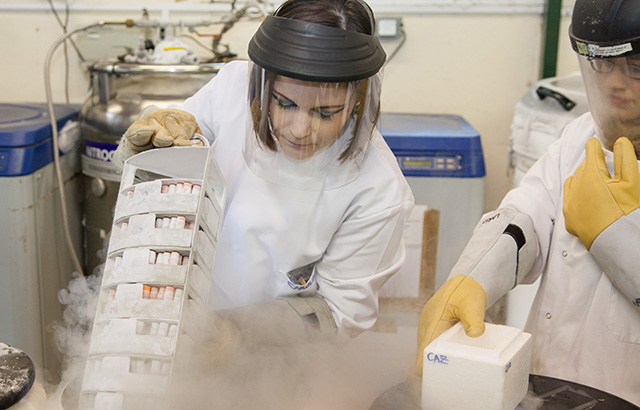Six separate grants worth over £2.5 million have been awarded in London as part of the charity’s Research Innovation Awards scheme which funds forward thinking, ambitious research proposals from across the UK which challenge the status quo.
Dr Gunnel Hallden is leading one of the pioneering studies at Queen Mary. It builds on previous work funded by Prostate Cancer UK, which saw Dr Hallden develop a modified type of flu virus that specifically infects and kills cancer cells, leaving non-cancer cells unharmed.
Using viruses to target cancer cells
Dr Hallden from Barts Cancer Institute, Queen Mary University of London, said: “Our first study proved very successful when the virus was injected directly into cancer cells in mice and used alongside standard chemotherapy drugs. However, we wanted to find a way of delivering it via the blood, so it can reach all tumours in the body at once, instead of being injected into just one.
“This has proven difficult in the past, but by ‘packaging’ the virus with special proteins to help protect it as it travels through the blood, we hope the virus can survive long enough to reach the tumours. We’ll also modify the virus to give it the ability to alert the patient’s immune system to prostate cancer so the patient’s own body will continue to fight the disease.
“Thanks to Prostate Cancer UK’s generous grants, we hope we can soon have a new treatment for men with incurable prostate cancer which will improve both the length and quality of their life.”
‘Hugely exciting research projects’
Prostate cancer is the most common cancer in men and the disease kills one man every 45 minutes in the UK, amounting to more than 11,500 men every year.
Dr Matthew Hobbs, Director of Research at Prostate Cancer UK said: “Prostate cancer is on target to become the UK’s most commonly diagnosed cancer by 2030, and every year over 9,000 men are diagnosed with prostate cancer too late and told that it can’t be cured.
“That’s why we’re funding innovative research like this to benefit men diagnosed with a later stage of the disease. By funding these six hugely exciting research projects at three different London institutions we believe that London will become an even more effective hub for research that will help to tame prostate cancer.”
More information
- Find out about studying cancer postgraduate courses at Barts Cancer Institue, Queen Mary University of London.



